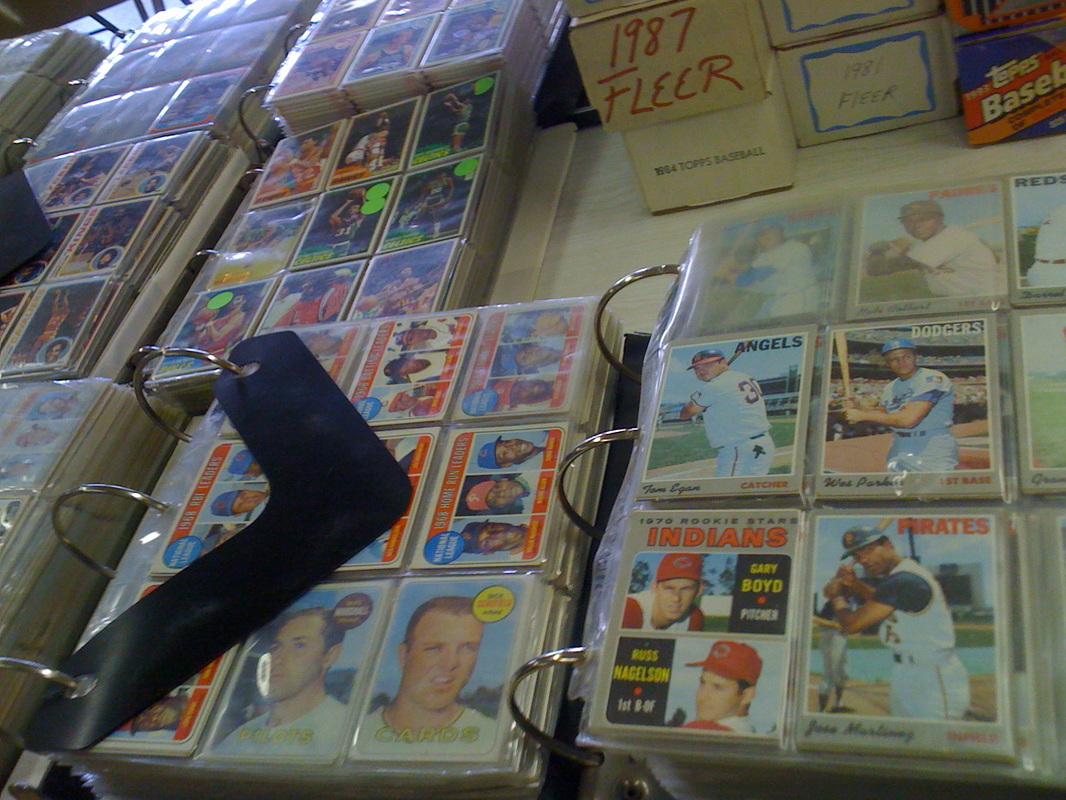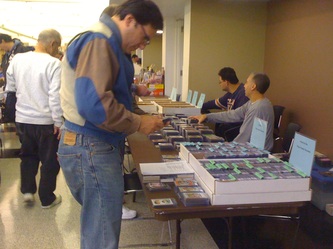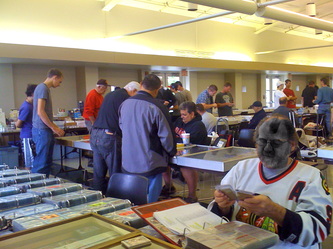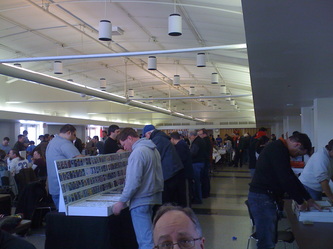The following article is purely the opinion of the author and not intended to harm or cause damage in anyway to the business enterprise of Kabbage Inc. The intent of the article is to provide insight and information to help consumers decide whether a Kabbage loan is in their best interest.
I sell a great deal of vintage sports cards on eBay. To feed my eBay store, I purchase a tremendous amount of vintage sports cards on a regular basis. Sometimes I don't always have the funds when a good deal presents itself. I recently observed the advertisements for Kabbage on eBay and tried to research this "loan" system. I could not find a negative review of Kabbage on the internet. Though everything I read seemed to come straight from a Kabbage Inc. press release. These folks are smart and have enrolled an army of internet professionals to espouse the benefits of Kabbage.
I went to the Kabbage website and read the Kabbage "loan" contract. According to the contract, Kabbage is not a loan at all, rather, they claim to purchase your future sales. They call the "loan" an "advance." There is an incredible amount of legalese in the Kabbage contract. To say the contract is skewed in favor of Kabbage Inc. and limits your rights to almost nothing, is an understatement. One of my biggest concerns with the Kabbage contract is that since it is not a loan per se, Kabbage does not have to follow federal and state lending laws. Thus, when you contract with Kabbage, your rights are greatly limited, as opposed to a traditional bank loan where you have protection in the form of state and federal statutes.
Well, I wanted to make this purchase of a large group of cards, so against my better judgment, I took a Kabbage "loan." I knew right from the start that it was a losing proposition but I felt the only way to fully understand how Kabbage operates, because the contract makes no sense, was to take an "advance."
Here's what I learned: At a minimum, you are going to pay $300 to take a $1000 advance from Kabbage. The company's internet professionals espouse about a supposed 8 percent interest rate. This is complete nonsense, I ended up paying more like 40 percent interest because of all the fees. These folks are quick with the fees, so that $300 cost will go up quickly. First off, you only get six months to pay off your Kabbage debt. You give Kabbage full access to your PayPal account. Your first payment is due before you can purchase and receive product. With no time to sell the new product before payment is due, expect to receive a late fee. Then the friendly folks at Kabbage will raid your PayPal account until that first payment is paid in full. You can forget about purchasing eBay shipping. You will have no funds in your PayPal account to purchase eBay shipping and the free tracking because Kabbage will grab it as soon as a customer makes a payment. I ended up having to go to the post office to pay the higher USPS shipping cost and tracking. So I incurred a late fee from Kabbage and had to pay extra shipping fees because Kabbage wouldn't leave any money in my PayPal account to purchase eBay shipping.
I found it difficult to meet any of my Kabbage payment due dates. The due date is usually between the 5th and 7th day of the month. If you're like me and pay your eBay fees on the last day of the month, you have less than a week to sell enough product on eBay to cover your Kabbage payment -- nearly impossible. The result, another fee. Kabbage gives you just five days after your payment due date before a fee is incurred. The end result here is Kabbage is a bottomless pit of fees and aggravation. I will not take another Kabbage loan and I urge others to avoid this company at all costs. With all the fees in addition to the amount of money I spent purchasing product with my Kabbage "loan," I ended up losing money. My goal is to make money, not lose it. In my opinion, Kabbage is a borderline predatory entity. I think state and federal officials are going to have to refine consumer protection laws to make this Kabbage-type "loan" illegal.
The comments posted below are the independent opinions of the posters and not that of the author. I have disabled further comments. Seems like the majority of comments that come in are phony.
I sell a great deal of vintage sports cards on eBay. To feed my eBay store, I purchase a tremendous amount of vintage sports cards on a regular basis. Sometimes I don't always have the funds when a good deal presents itself. I recently observed the advertisements for Kabbage on eBay and tried to research this "loan" system. I could not find a negative review of Kabbage on the internet. Though everything I read seemed to come straight from a Kabbage Inc. press release. These folks are smart and have enrolled an army of internet professionals to espouse the benefits of Kabbage.
I went to the Kabbage website and read the Kabbage "loan" contract. According to the contract, Kabbage is not a loan at all, rather, they claim to purchase your future sales. They call the "loan" an "advance." There is an incredible amount of legalese in the Kabbage contract. To say the contract is skewed in favor of Kabbage Inc. and limits your rights to almost nothing, is an understatement. One of my biggest concerns with the Kabbage contract is that since it is not a loan per se, Kabbage does not have to follow federal and state lending laws. Thus, when you contract with Kabbage, your rights are greatly limited, as opposed to a traditional bank loan where you have protection in the form of state and federal statutes.
Well, I wanted to make this purchase of a large group of cards, so against my better judgment, I took a Kabbage "loan." I knew right from the start that it was a losing proposition but I felt the only way to fully understand how Kabbage operates, because the contract makes no sense, was to take an "advance."
Here's what I learned: At a minimum, you are going to pay $300 to take a $1000 advance from Kabbage. The company's internet professionals espouse about a supposed 8 percent interest rate. This is complete nonsense, I ended up paying more like 40 percent interest because of all the fees. These folks are quick with the fees, so that $300 cost will go up quickly. First off, you only get six months to pay off your Kabbage debt. You give Kabbage full access to your PayPal account. Your first payment is due before you can purchase and receive product. With no time to sell the new product before payment is due, expect to receive a late fee. Then the friendly folks at Kabbage will raid your PayPal account until that first payment is paid in full. You can forget about purchasing eBay shipping. You will have no funds in your PayPal account to purchase eBay shipping and the free tracking because Kabbage will grab it as soon as a customer makes a payment. I ended up having to go to the post office to pay the higher USPS shipping cost and tracking. So I incurred a late fee from Kabbage and had to pay extra shipping fees because Kabbage wouldn't leave any money in my PayPal account to purchase eBay shipping.
I found it difficult to meet any of my Kabbage payment due dates. The due date is usually between the 5th and 7th day of the month. If you're like me and pay your eBay fees on the last day of the month, you have less than a week to sell enough product on eBay to cover your Kabbage payment -- nearly impossible. The result, another fee. Kabbage gives you just five days after your payment due date before a fee is incurred. The end result here is Kabbage is a bottomless pit of fees and aggravation. I will not take another Kabbage loan and I urge others to avoid this company at all costs. With all the fees in addition to the amount of money I spent purchasing product with my Kabbage "loan," I ended up losing money. My goal is to make money, not lose it. In my opinion, Kabbage is a borderline predatory entity. I think state and federal officials are going to have to refine consumer protection laws to make this Kabbage-type "loan" illegal.
The comments posted below are the independent opinions of the posters and not that of the author. I have disabled further comments. Seems like the majority of comments that come in are phony.





 RSS Feed
RSS Feed
